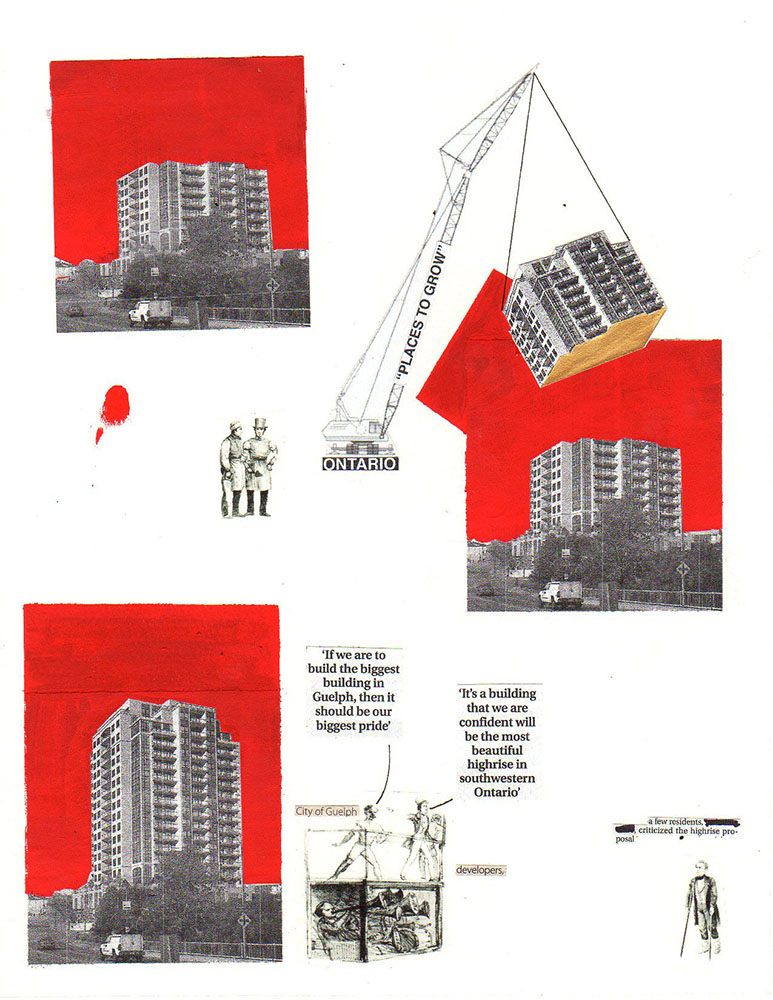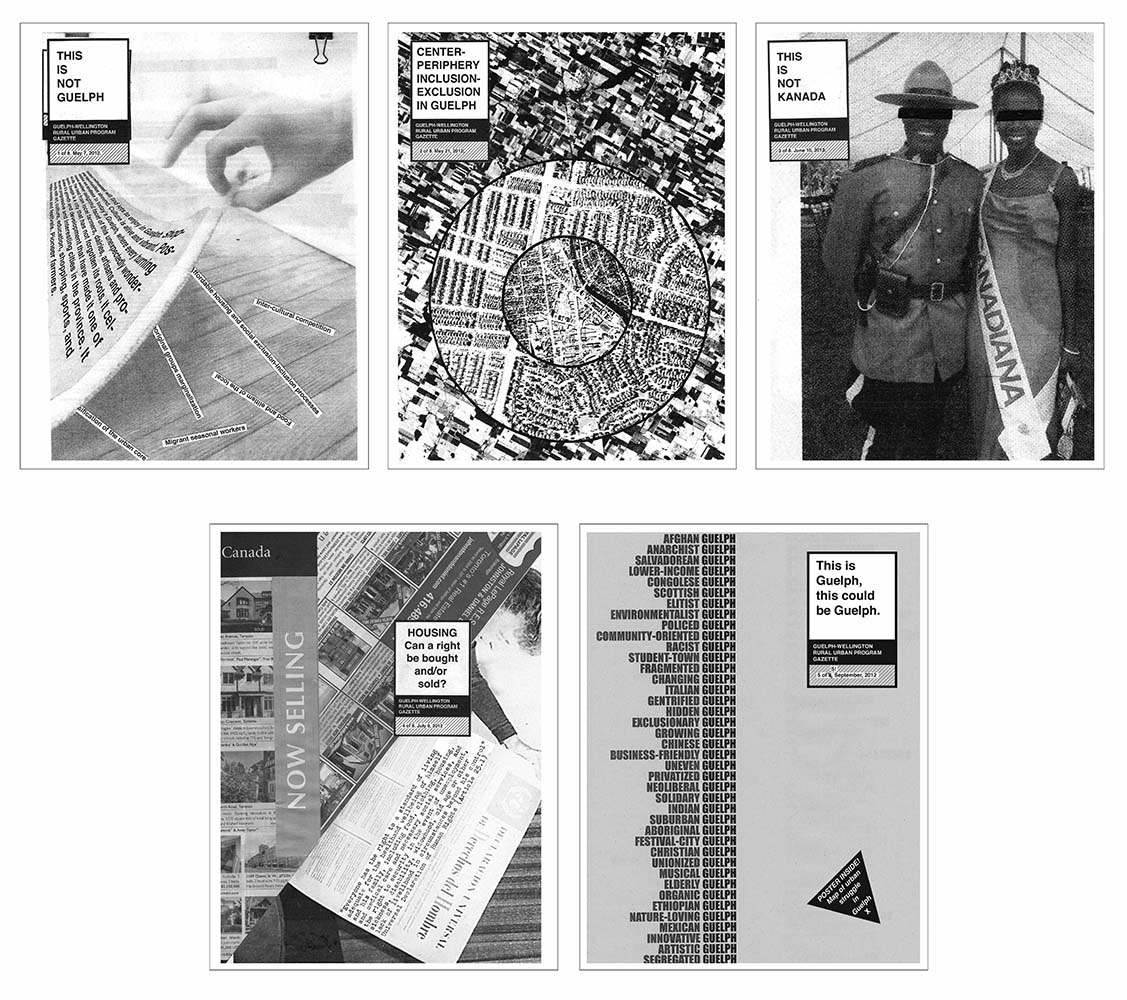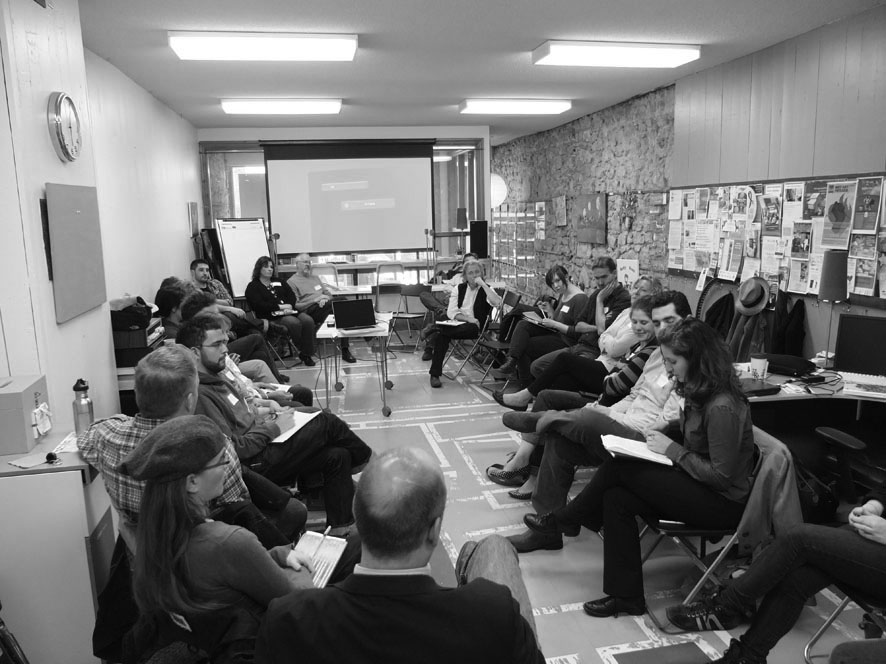Project as
Project as
CohStra (Lucia Babina, Emiliano Gandolfi, Gabriela Rendón and Miguel Robles-Durán)
Commissioned by
In collaboration with
Production Contributions
-Guillermo Delgado Castaneda/CohStra
-Thomas Purcell/CohStra
-Marjetica Potrc, artist
Project Contributions
-Lise Burcher, City of Guelph City
-Lorie Delane, Onward Willow
-Ali English, Farmstart Training
-Eduardo Garay, FutureWatch EDEP
-Rodrigo Goller, City of Guelph Community
-Ryan Hayhurst, University of Guelph Rural studies
-Brett Holowchuck, Brant Avenue
-Jean Kayeye, Alliance Jeunesse FemilRlee
-Lynne Kloostra, Brant Avenue
-Brendan Johnson, Everdale Executive director
-Alison Mitchell, Garden Fresh Box
-Terry O’Connor, Guelph and District Lab
-Ian Pannabaker, City of Guelph
-Janice Pearce-Faubert, Brant Avenue
-Kerry Preibisch, University of Guelph
-Roya Rabbani, Immigrant Services
-Lorna Schwartzentruber, Onward Willow
-Kate Vsetula, Guelph Wellington Local
-Sonia Wairaich, Food Roundtable
Gazette #1: This is not Guelph
Gazette #2: Center-Periphery Exclusion-Inclusion in Guelph
Gazette #3: This is not Kanada
Gazette #4: Housing: Can a right be bought and/or sold?
Gazette #5: This is Guelph
GUELPH-WELLINGTON URBAN-RURAL
GWRUP is a research-based urban-cultural program commissioned by Musagetes Foundation and with the aim of serving as a dynamic tool for the production of the immediate and future cultural agenda of the Foundation. Musagetes is known to be firmly committed to the strengthening of socially engaged cultural practices and their inherent potential to positively transform the socio-spatial conditions of the area of Guelph in Canada.
GWRUP was conceived as an action knowledge base able to raise crucial questions about the city’s urban, economic, political, environmental, social and artistic development, as well as to stimulate debate and production of critical cultural knowledge through the growth of new local associations between citizens, artists, activists, designers, grassroots groups, and local cultural, educational, political and social institutions. Together with the assistance of local and international researchers, different applications of scientific and participatory action research were used as tools for gathering in-depth knowledge about Guelph, its surroundings, and most importantly about the social relations that compose the ecology of the city. A number of activities were organised to extract, translate and produce local knowledge for, with and by citizens from various neighborhoods and diverse social and economic backgrounds. The research topics identified in these sessions revealed critical local issues such as, the downtown’s densification process, the lack of affordable housing, the living condition of migrant seasonal workers, the continuation of Guelph’s pioneering incursion in cooperativism and the controversies around food politics and the environment.
The research is structured by three interrelated areas feeding each other: (1) Local and global environmental, cultural, political, social and economic processes; (2) The political economy of food systems; (3) Politics of space: social exclusion and inclusion through housing and urban development.
As part of the research process CohStra published 5 bi-weekly Gazettes aiming to share the knowledge produced during the research process in the Guelph-Wellington region. In addition, this publication sought to engage citizens and local groups in the research process and discussion sessions.



